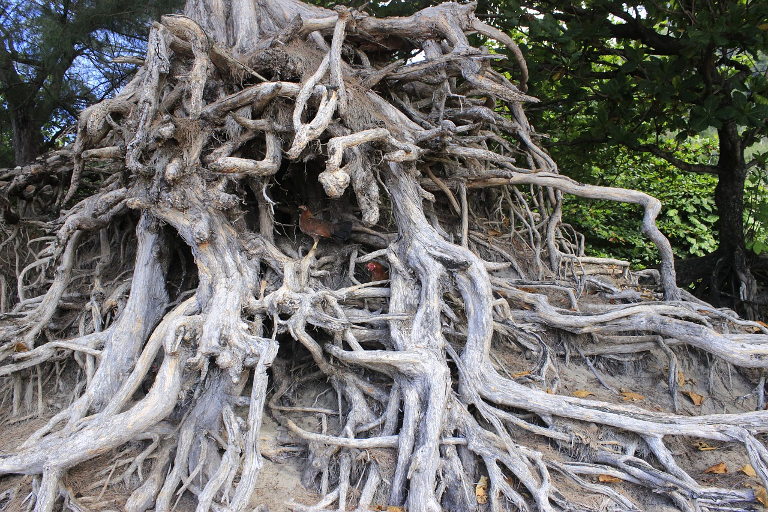This post is based on a chapter from Post Carbon Institute’s 2016 book The Community Resilience Reader: Essential Resources for an Era of Upheaval.
Homo sapiens is not primarily a rational species. We humans are driven by the universal tendency of living organisms to occupy all accessible habitats and use up all available resources with little heed for the future. Uncontrolled, this instinct alone is a recipe for resource depletion and conflict. It is certainly a root cause of climate change, energy shortages, fisheries collapses, landscape degradation, and associated geopolitical tensions. Is Homo sapiens unsustainable by nature?
Theoretically, of course, humans have the reasoning power and foresight to avoid ecological and consequent geopolitical catastrophe, but high intelligence is frequently overridden by defensive emotion and instincts. This problem may be particularly intractable if society continues to operate from ideological constructs (like neoliberal economics) with only tenuous links to biophysical reality. Consider, for example, that many people now bolster their belief in infinite material growth on the additional mythic grounds that the economy is “decoupling” from nature. This is a fatally stunning illusion for a species that has become the most significant consumer organism in every major accessible ecosystem on Earth and the greatest geological force changing the face of the planet.
What, then, can we expect in extraordinary circumstances? Global technoindustrial capitalist society currently confronts several macrochallenges, including faltering economies, the rise of oligarchies, rampant corruption, widening income gaps, popular disenchantment, accelerating climate change, and ecological decline. To top it off, the world “system” is vastly too complex to fully comprehend, let alone manage.
Our very existence is proof that primitive emotion and survival instincts have historically served us well. Crude instincts, however, have become dangerously maladaptive in the complex geopolitical environment they have helped create. The world is at a tipping point and needs a reality check. The time has come to acknowledge the subliminal drivers and constructed myths that have brought us to crisis and strive consciously to hold them in check. Let governments admit that conventional models of the economy and human economic behavior are dangerously laughable caricatures, that unlimited material growth on a finite planet is an impossibility theorem, that the (un)sustainability crisis is a collective problem that demands collective solutions, and that cooperation is essential for mutual survival. In short, the world community must rewrite its sociocultural narratives and create economic and social models that are truer to reality. The future of humanity resides in the ascendance of humanity’s higher intellectual powers in dealing with the complexity of our times. A livable future resides in people rising above simplistic visceral responses in the exercise of true agency. The global community must deliberately choose to design an adaptive survival strategy that reflects contemporary reality.
Many citizens have come to realize that for the first time in human (evolutionary) history, collective reason must prevail over subliminal drivers (e.g., short-term narrow self-interest) if civilization is to survive. If enough people so awaken, it would constitute a conscious cultural adaptation to a truly unprecedented predicament. It may also well be the only thing that can ensure that there will be additional generations of H. sapiens.





